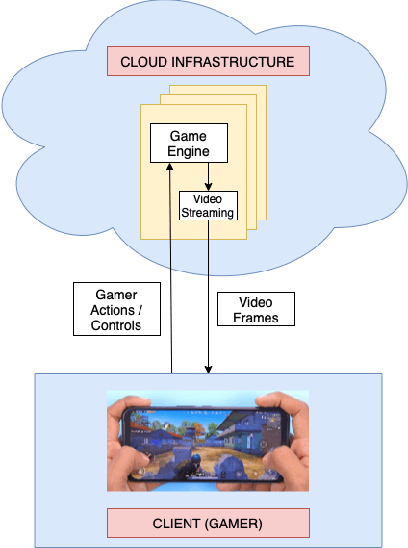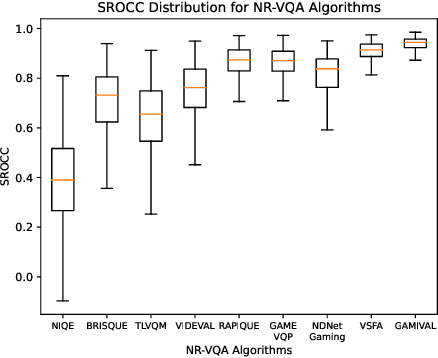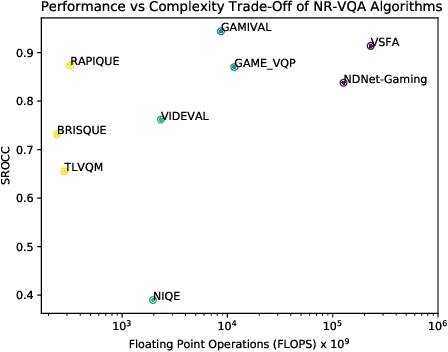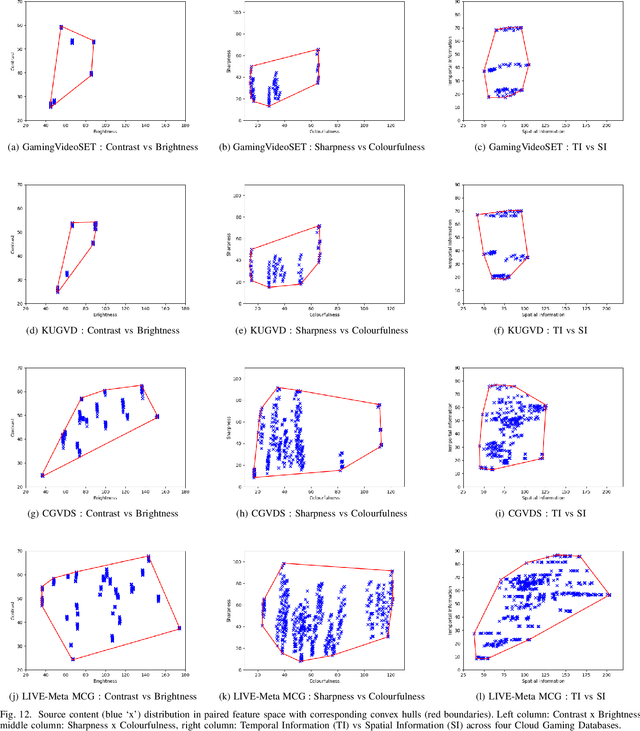Chase Davis
Study of Subjective and Objective Quality Assessment of Mobile Cloud Gaming Videos
May 26, 2023



Abstract:We present the outcomes of a recent large-scale subjective study of Mobile Cloud Gaming Video Quality Assessment (MCG-VQA) on a diverse set of gaming videos. Rapid advancements in cloud services, faster video encoding technologies, and increased access to high-speed, low-latency wireless internet have all contributed to the exponential growth of the Mobile Cloud Gaming industry. Consequently, the development of methods to assess the quality of real-time video feeds to end-users of cloud gaming platforms has become increasingly important. However, due to the lack of a large-scale public Mobile Cloud Gaming Video dataset containing a diverse set of distorted videos with corresponding subjective scores, there has been limited work on the development of MCG-VQA models. Towards accelerating progress towards these goals, we created a new dataset, named the LIVE-Meta Mobile Cloud Gaming (LIVE-Meta-MCG) video quality database, composed of 600 landscape and portrait gaming videos, on which we collected 14,400 subjective quality ratings from an in-lab subjective study. Additionally, to demonstrate the usefulness of the new resource, we benchmarked multiple state-of-the-art VQA algorithms on the database. The new database will be made publicly available on our website: \url{https://live.ece.utexas.edu/research/LIVE-Meta-Mobile-Cloud-Gaming/index.html}
GAMIVAL: Video Quality Prediction on Mobile Cloud Gaming Content
May 12, 2023Abstract:The mobile cloud gaming industry has been rapidly growing over the last decade. When streaming gaming videos are transmitted to customers' client devices from cloud servers, algorithms that can monitor distorted video quality without having any reference video available are desirable tools. However, creating No-Reference Video Quality Assessment (NR VQA) models that can accurately predict the quality of streaming gaming videos rendered by computer graphics engines is a challenging problem, since gaming content generally differs statistically from naturalistic videos, often lacks detail, and contains many smooth regions. Until recently, the problem has been further complicated by the lack of adequate subjective quality databases of mobile gaming content. We have created a new gaming-specific NR VQA model called the Gaming Video Quality Evaluator (GAMIVAL), which combines and leverages the advantages of spatial and temporal gaming distorted scene statistics models, a neural noise model, and deep semantic features. Using a support vector regression (SVR) as a regressor, GAMIVAL achieves superior performance on the new LIVE-Meta Mobile Cloud Gaming (LIVE-Meta MCG) video quality database.
* Accepted to IEEE SPL 2023. The implementation of GAMIVAL has been made available online: https://github.com/lskdream/GAMIVAL
 Add to Chrome
Add to Chrome Add to Firefox
Add to Firefox Add to Edge
Add to Edge